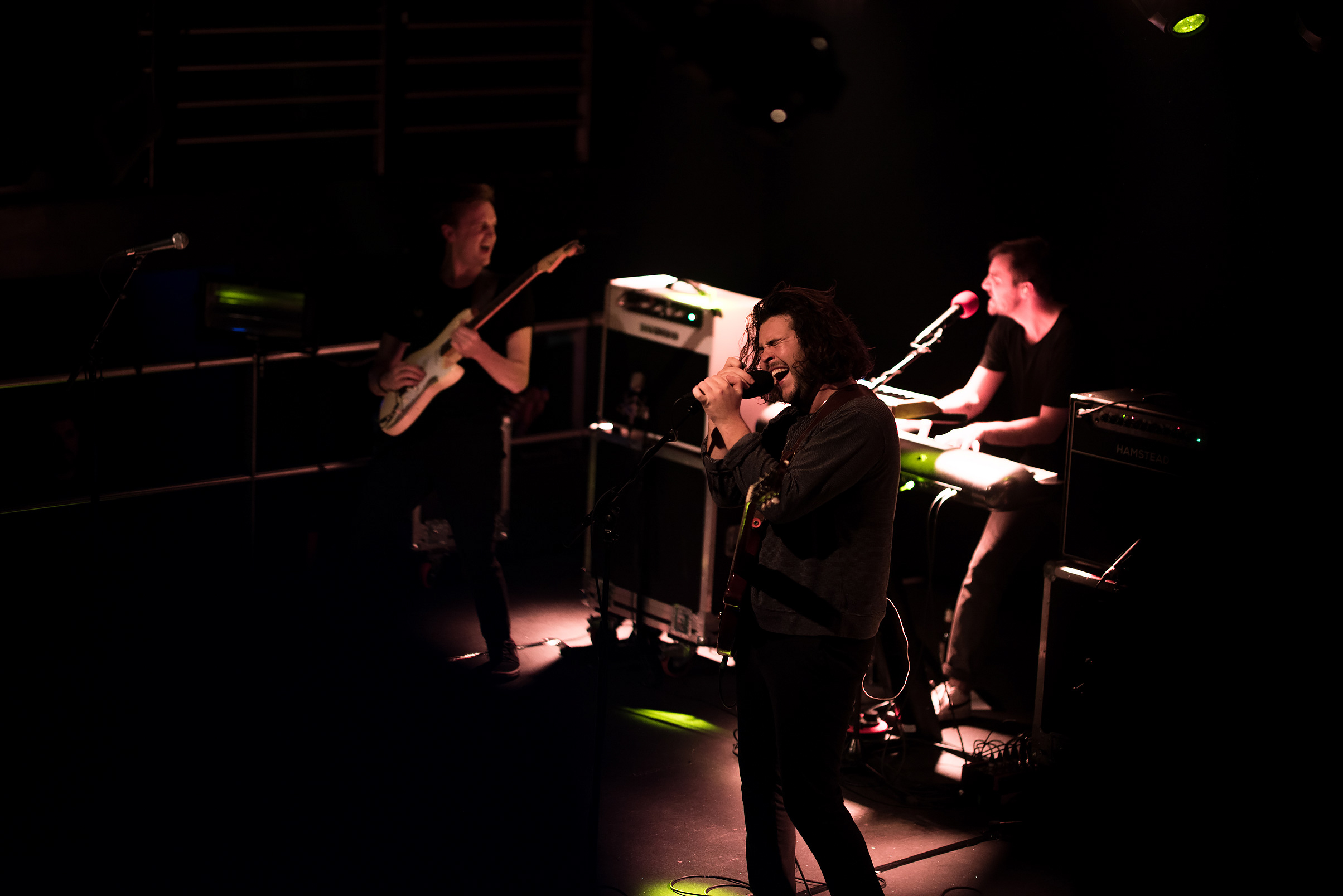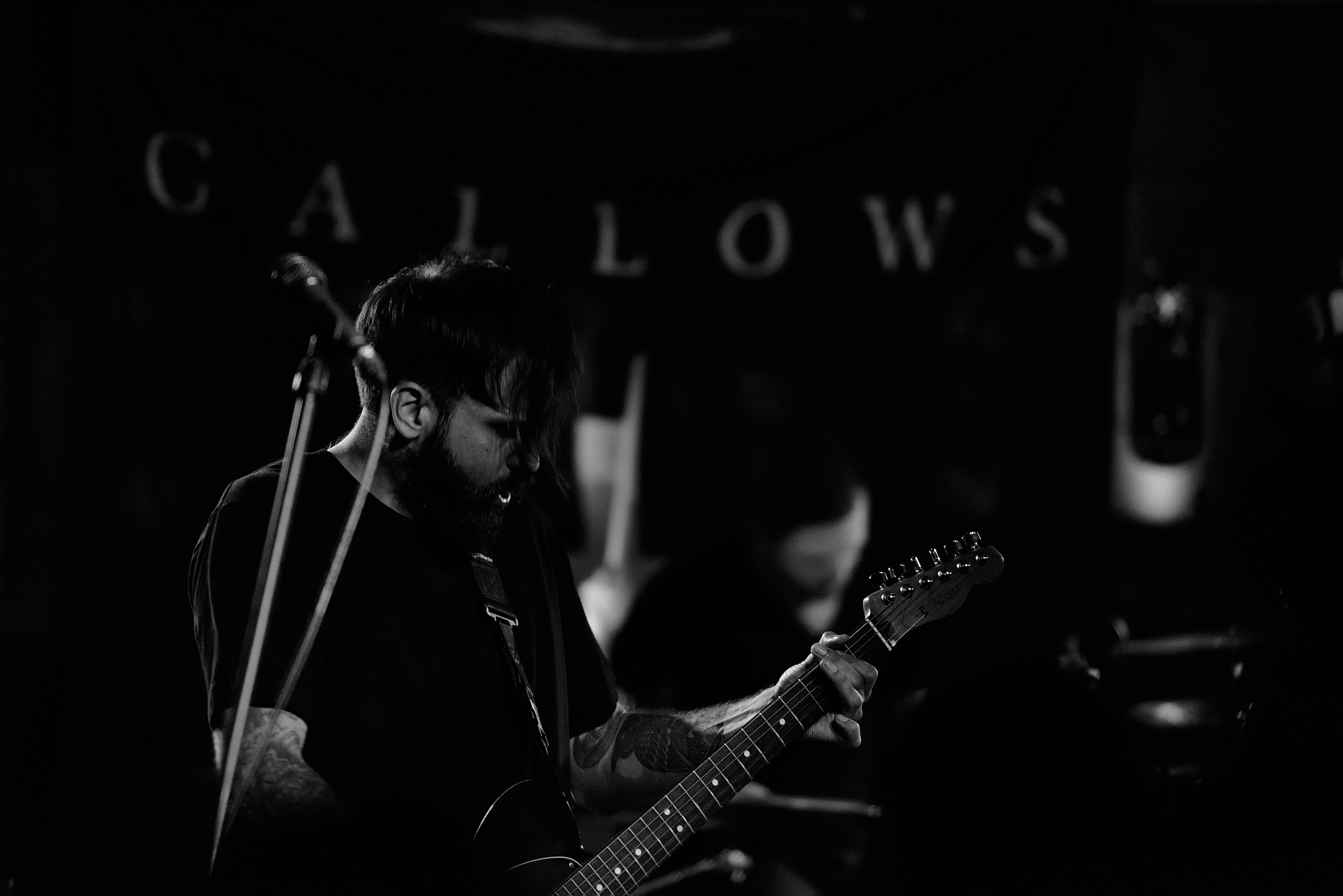Building Your Band's Online Buzz: A DIY Guide for Musicians
Building Your Band's Online Buzz: A DIY Guide for Musicians

In today's music world, having an online presence isn't just a plus, it's a must. The internet gives independent musicians a chance to connect with fans directly, skip the traditional gatekeepers, and create a community around their music. But, with so much content being uploaded every single day (think around 120,000 new tracks on streaming platforms DAILY!), it's a real challenge to get noticed, especially when you're on a tight budget.
This guide is for those bands: willing to put the work in but light on the wallet. We'll cover how to define your band's identity, connect with your ideal fans online, make the most of your digital presence, and build a fanbase that'll stick with you. The best part? We'll focus on free and low-cost tactics to get the buzz going, build that community, and set you up for long-term success.
Remember: it's not about how much you spend, it's about having a plan, being real, and putting in the effort.
1. Finding Your Fans and Your Vibe
Before you start promoting your music, you've got to figure out two things: who you want to reach (your target audience) and who you are as a band (your brand identity).
Yeah I know, a brand identity for a band? Urgh. But get these right, and your marketing will be way more focused, efficient, and effective. You'll get better engagement, and you'll make the most of your limited time and money. Trying to appeal to everyone is a recipe for appealing to no one. Finding your niche is key.
Who Are Your People? (Target Audience)
Your target audience is that group of people who will really connect with your music and become true fans. Think of it as a subset of a larger market. So, instead of "rock music listeners," think "London-based fans of 90s-inspired indie rock, aged 20-35, who are active on Instagram and go to local gigs." Focusing on a niche, even a small one, helps you build deeper connections and promote your music more effectively.
How to Find Them
- Analyse Your Current Fans: Start with the people who are already listening, coming to your shows, or following you online. What do they have in common? (age, location, interests, online behavior, etc.) Even if that's just your friends and family at the beginning, connect with them and get them to spread the word.
- Use Analytics: Social media platforms (Instagram, Facebook, TikTok, YouTube) and streaming services (Spotify, Apple Music) have built-in analytics tools. They give you info on who's listening, where they're from, what they like, etc. This data is GOLD – pay attention to it!
- Research Similar Artists: Check out bands in your scene who are doing well. Who are their fans? What platforms do they use? What kind of content do they create? How do they brand themselves? You can learn a lot from this. Artists who are growing fast but not massive can be particularly helpful to study.
- Engage on Social Media: Use social media to listen and learn, don’t just broadcast. Join relevant groups, follow forums, and see what people are saying in the comments. Ask your audience questions with polls or posts.
- Find Your Niche Communities: Think beyond just music. What subcultures, lifestyles, interests, values, or life experiences connect with your band? There are often dedicated online spaces for these communities where you can build genuine connections.
Key Questions to Ask:
- Who are they? (age, gender, location, etc.)
- What are their interests, passions, values, and lifestyle?
- Where do they discover new music and hang out online? (platforms, blogs, forums)
- What kind of content do they like?
- What challenges do they face that your music might address?
- Who else do they listen to?
Remember, your audience will change over time, so keep checking in and updating your profile. And while it's good to be specific, don't be so narrow that you miss out on potential fans.

2. Defining Your Brand: Who Are You?
Yep, I’m using the brand word again. Your brand is how fans see you and connect with you emotionally. It's your story, your values, your unique sound, your look, and how you communicate. A strong, authentic brand helps you stand out, builds recognition, and creates deeper connections with fans. Your brand should feel real to who you are as artists. Fans connect with genuine stories.
What Makes Up Your Brand?
- Brand Story & Mission: What's your band's story? Where did you come from? What inspires your music? What are your values? What message do you want to send? An artist mission statement can help you get clear on this. Include those unique details and any challenges you've overcome.
- Unique Selling Proposition (USP): What makes you different? Is it your sound, your lyrics, your live shows, your look, your background? Use this USP in all your branding and communication. Figure out what makes you special and how you're different from other bands.
- Signature Sound: While it helps to fit into a genre, try to have a unique sound. This could be in your production, vocals, instruments, or lyrics. Be consistent, but also allow your sound to grow naturally.
- Visual Identity: In an algorithmic world, This is so important for recognition and showing your brand's vibe. Your visuals should match your music. Key elements:
- Logo: Keep it simple, memorable, and versatile.
- Color Palette: Choose colors that fit your music's mood.
- Typography: Select fonts that are easy to read and match your brand's tone.
- Imagery: Have a consistent style for album covers, photos, and social media graphics. Photos should be high-quality and reflect your genre and personality. Make sure photos are downloadable for press.
- Style/Fashion: What you wear in photos and at shows is part of your brand.
- Brand Voice/Communication Style: How do you talk to your fans online and offline? Are you funny, serious, informative, chatty? Keep this consistent across all platforms.
Branding on a Budget:
Visuals:
- DIY Logo/Graphics: Use free or cheap design tools like Canva or Figma, or free logo makers. If you use stock images, make sure you change them up to make them your own. AI logo generators can be a good place to start.
- Photography: Ask friends with photography skills for help. Or use affordable freelance platforms like Fiverr. Focus on good lighting (natural light is free!) and creative angles with your smartphone. Make sure your photos are high-resolution.
- Feedback: Get input on your branding from people you trust.
- Consistency: This is the MOST important thing. Use your visual style (logo, colors, fonts) and brand voice across all of the key channels. That’s website, social media, EPK, emails, merch.
Building a brand takes time. Be ready to test things out, make changes, and grow but don't worry about being perfect right away. Just create a basic framework and build from there.

3. Social Media on a Shoestring Budget
Social media is a must for independent musicians. It’s free to create your profiles and it lets you build a following, connect with fans, and promote your music. To succeed, you need a strategy focused on consistency, being authentic, and creating content for each specific platform.
Social Media Success: The Basics
- Choose the Right Platforms: Focus on where your target audience spends their time. Popular platforms for musicians include Instagram, TikTok, YouTube, and Facebook. Keep your profile picture, bio, and visual theme consistent across all your chosen platforms.
- Consistency is Key: Post regularly to stay relevant, keep your audience interested, and please those platform algorithms. Aim for a schedule you can maintain (like 3-5 times a week).
- Be Authentic: Social media is a two-way street. Respond to comments and messages quickly. Ask questions, run polls, and do Q&As or live streams to connect with your fans. Treat your posts like real conversations. Building genuine connections is essential.
- Content Strategy (The 80/20 Rule): Aim for about 80% engaging, valuable, or entertaining content, and 20% direct promotion (like ‘stream our new single’). This helps you keep a good balance.
- High-Quality Visuals: Even on a budget, make quality a priority. Use high-resolution photos and well-lit videos. Invest in good cover art and visuals for your releases. Make sure your videos have good audio.
- Call to Actions (CTAs): Tell your fans clearly what you want them to do. You’ll be surprised how many will share your post or pre-save your release if you ask them.
- Track Analytics: Use platform analytics to see how your content is performing, when your audience is most active, and adjust your strategy.
Conclusion: Play Your Own Tune
Building your band's online presence might seem overwhelming, but remember, every breakthrough artist started somewhere. The digital landscape offers unparalleled opportunities for independent musicians to bypass traditional gatekeepers and connect directly with a global audience. By taking the time to define your unique identity, understand your ideal fans, and apply smart, consistent social media strategies, you're laying a solid foundation for long-term success.
It's not about huge budgets or viral overnight sensations – it's about genuine connection, consistent effort, and telling your authentic story. Don't be afraid to experiment, learn from your analytics, and adapt your approach. Your journey as an independent musician is unique, and with dedication to these DIY principles, you can build a vibrant, engaged community around your music. So, go forth, create, connect, and let your music be heard! The digital stage is waiting for you to play your own tune.
